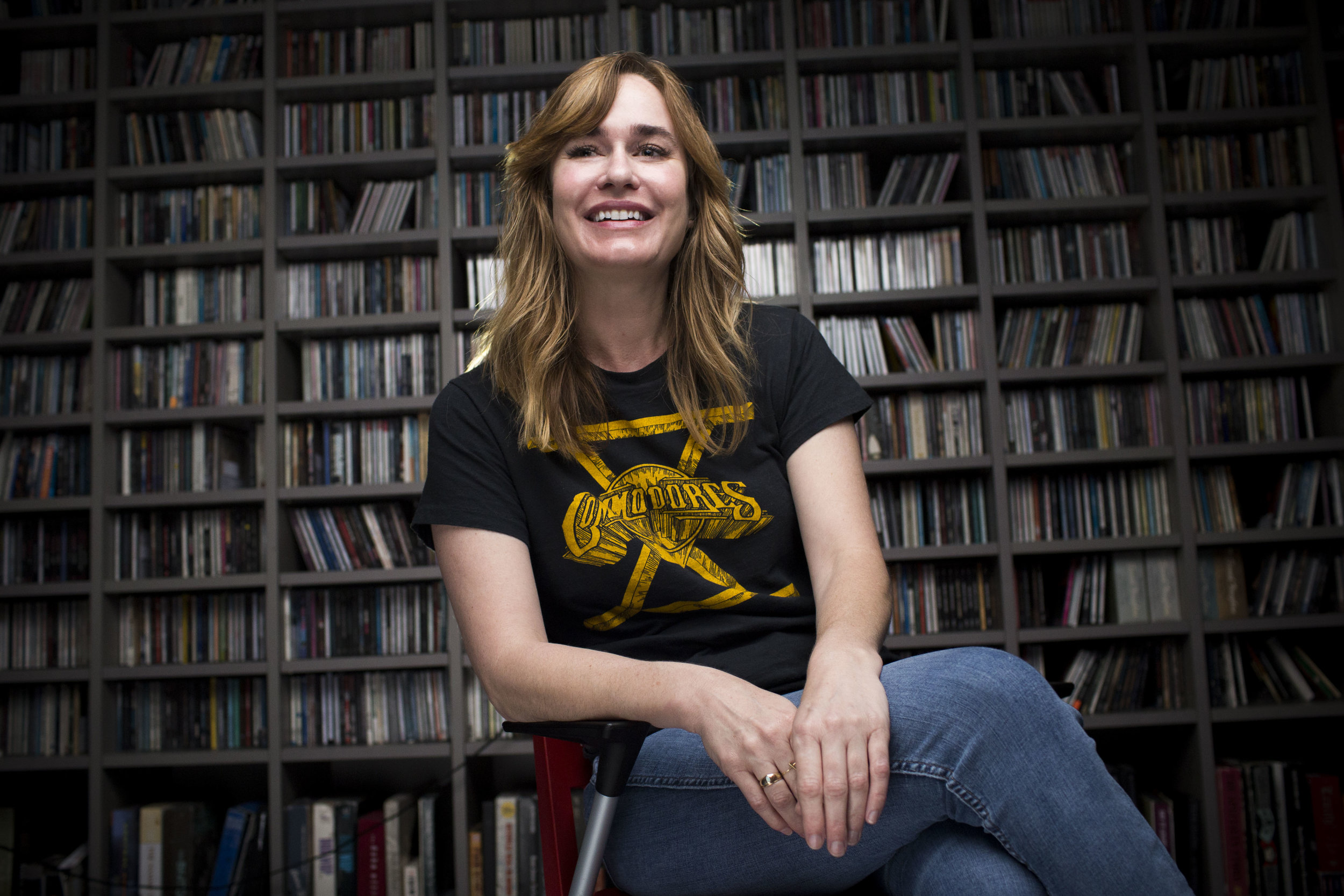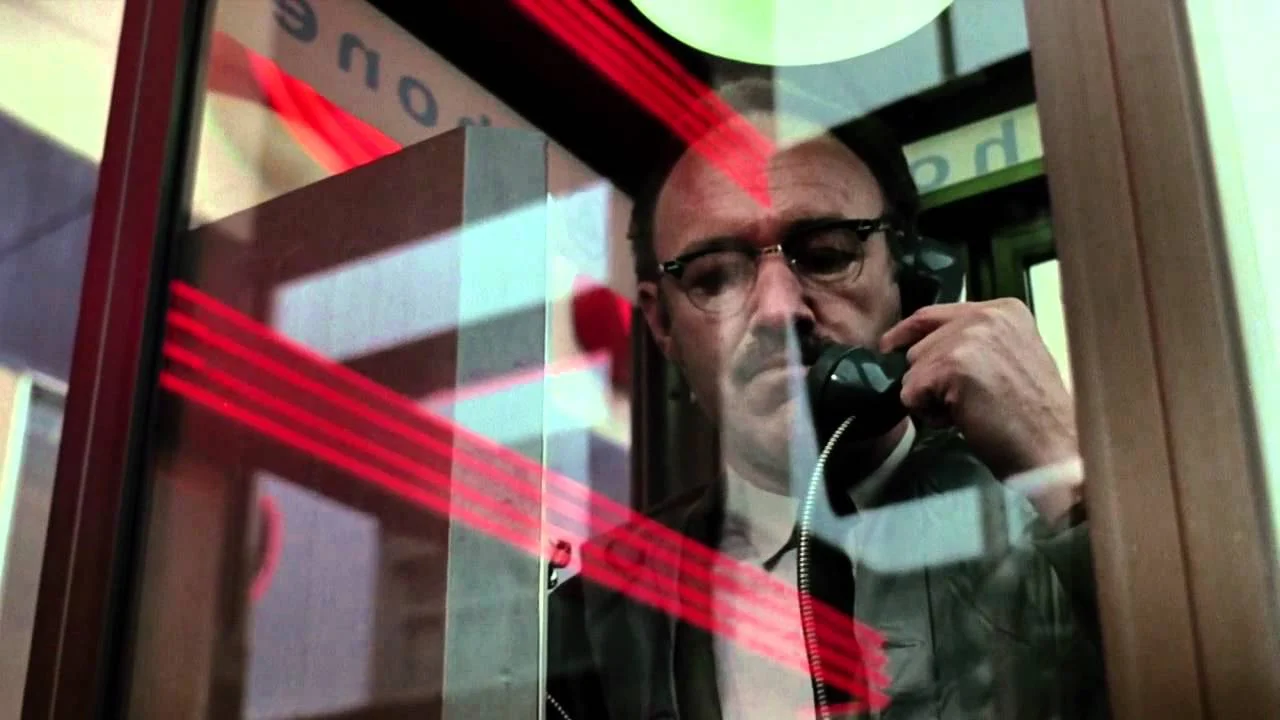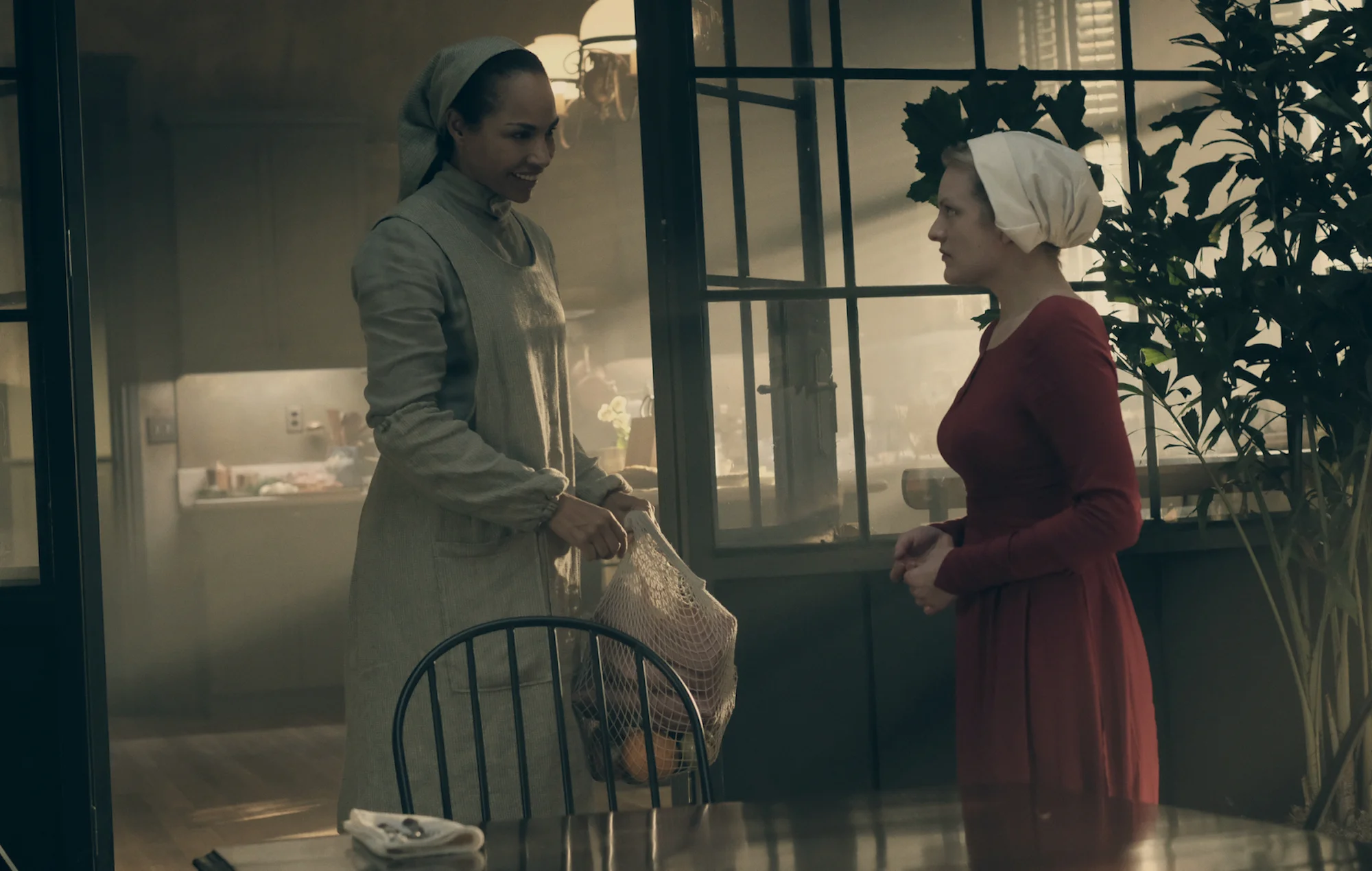Maggie Phillips
Brilliant music supervisor and founder of Deep Cut Music, Maggie Phillips returns to discuss the unique sonic demands of the diverse portfolio of television favorites in her purview. Since our last interview, Maggie has continued her astoundingly prolific run, establishing new benchmarks for her craft. In recent years, it would be almost impossible to be a consumer of pop culture without encountering a dynamic soundtrack carefully curated and cleared by Maggie. She is the arbiter of taste behind Sam Esmail’s psychological thriller, Homecoming, Barry Jenkins’ Oscar-winning drama, Moonlight, Noah Hawley’s psychedelic sci-fi whirlwind, Legion, Bruce Miller’s dystopian serial, The Handmaid’s Tale, Nick Antosca’s chilling true crime series, The Act, Jeremy Slater’s fantasy adventure show, The Umbrella Academy, Aidy Bryant’s body positivity comedy, Shrill, Justin Marks’ mysterious espionage drama, Counterpart, and many more binge-worthy projects. In our stimulating exchange, Maggie details how she accomplished an extraordinary feat in licensing every note of music in Homecoming from pre-existing classic film scores and gives us a hint of what’s to come in the final season of Legion.
Source: Gabriel C. Pérez / KUTX Austin
As one of the hardest working and most versatile music supervisors in the industry, what are your insights regarding the future trajectory of your profession? From The Puffy Chair to the present, what has propelled your enthusiasm for the craft and positioned you to lead such a dynamic, artistically varied career in this field?
I am very fortunate. I get to work on some amazing shows with very talented people. As far as the future, I can only hope for more of the same. I have a great team around me, and we are always working towards becoming more efficient and sustainable. As far as what has propelled me, I demand excellence from myself, and from my team. I try to put my heart and soul into everything I do. And honestly, I am just a nerd at the core. I want that A+ on every project, even if that means working around the clock.
I love that I get to work on such varied shows — I do that on purpose. I took on a YA [young adult] show last year (Trinkets on Netflix) because I had never done anything like that before — same with Homecoming. I just started a ''period piece'' (and I use that term lightly) called The Great on Hulu because of the amazing script, people, and project but also because it's unlike anything I've done before. I like to be challenged and keep learning. I am not a musical historian, nor would I even call myself an expert.
Taking on different types of projects keeps me on toes, keeps me researching and digging into new genres and periods. That's what I truly love, the hunt and the discovery. Oh and also, when you marry picture to music, and you transform both into something new, something magical — I think that's when I make art. It's rare, but when it happens, it makes all the bullshit part of this job worth it.
Homecoming is a cerebral dramatic thriller revolving around Heidi Bergman, a caseworker who helps soldiers transition back into civilian life at Homecoming Transitional Support Center. Four years later, she has started a new life, living with her mother and working as a waitress in a small town when the Department of Defense comes to question her about her time at the facility. What attracted you to this project?
At first, a few simple things: Sam Esmail, the podcast, plus one of my oldest friends from Austin, Tod Campbell is the DP [Director of Photography], and of course, Julia Roberts! But it was meeting Sam in person and talking about his vision for the soundtrack that I truly became attached. And, again, it was unlike anything I've ever done before, unlike anything anyone had ever done before. I was scared but excited.
Despite sounding very natural and true to the environment, the Homecoming soundtrack is an ambitious assemblage of classic film scores by Vangelis, Lalo Schifrin, Bernard Hermann, James Horner, Ennio Morricone, John Carpenter, Jerry Goldsmith, John Barry and many more. Can you elaborate on your first conversations with Sam Esmail to define the sonic taste profile of the series? What was the core intention of traveling down this complex creative path?
This was Sam's vision — assembling and sourcing all of our soundtrack from these classic scores. I don't think anyone knew how difficult it was going to be. It was insane, and a BIG team effort. The editors on this show (Rosie Tan, Justin Krohn, and Franklin Peterson) were amazing and did all of the heavy lifting. Our music editor, Ben Zales, worked miracles.
The moments that were hardest creatively were the more intimate moments between Heidi [Julia Roberts] and Walter [Stephan James]. We had to license score that had been released on soundtracks. Most composers don't release the small, quiet, moments — the underscore. Finding those pieces was a huge challenge. Early on, I hit a wall and recommended that we hire a composer to score those moments so that it could be nuanced and specific to the scene. Sam was adamant — he wanted it all to be pre-existing, and I am glad he was. It was almost impossible, but the end result is so effective.
Considering that collating this many cues from distinct works for one soundtrack has never been accomplished before, what were the unique challenges you overcame in researching, budgeting, and matching these diverse recordings to picture? Who were some of the most difficult copyright holders to track down and clear?
The budget was the biggest challenge, but after that, tracking down copyright holders was unexpectedly laborious. With so many studio mergers, buyouts, etc., we hit a ton of dead ends. We got really crafty. A few times, we were about to reach out to the composers themselves. One composer we got on the phone was equally as baffled — he had no clue who owned his score. We tracked down family on Facebook and Twitter. We did everything we could. These scores had never been licensed before, so there was no existing paper trail like with songs.
The music team at NBC Universal helped significantly, not just with paperwork, but tracking down rights holders, digging into their own archives, and interfacing with the union. Another big surprise was the union fees. In some instances, the union fees were more than the actual license. I had to factor them into the budget in a way I had never done before. The licensing puzzle was massive and extremely time-consuming. And just like the creative, it was a huge team effort — my amazing team led by Christine Roe, our producer, Gregg Tilson, who was by my side throughout the whole process, Sean Schuyler, who helped out with everything, and NBC Universal's clearance team!
At the start of season three of The Handmaid's Tale, the dystopian drama delves deeper into Offred's commitment to The Resistance and her plan to remove her baby daughter, aided by fellow handmaid, Emily, from the oppressive, misogynistic theocracy. In our previous interface, you spoke of using musical devices to strategically remind the audience of pre-Gilead June in season two. How have these developing storylines altered your approach to soundtracking her experience?
The Handmaid's Tale is a difficult show to work on. The content is so loaded, and unfortunately, in our current political environment, Gilead doesn't seem so far fetched. It's sometimes painful to watch. People react so strongly to it, and the reactions are varied. I think men and women watch it differently. I think victims of sexual abuse watch it differently. The generations react differently. Everyone is bringing their own experiences into their experience of watching the show — and music is so personal.
I have my own songs that I'd love to hear at the end of some of these episodes as I'm sure others do. I tend to want to suspend the emotion at the end of the scene. I want to sit with it, stay in the moment — I don't like to be taken out. This is Bruce Miller's show, and he has a clear creative vision when it comes to the music, and I help facilitate. He likes to provoke. He likes to be daring and jarring — sometimes slapping you back into reality, taking you out of the world of Gilead and back into your world. It's effective. Some people love it, some people hate it, but people definitely talk about it. Bruce is doing more of the same this season and fans will not be disappointed.
Ali Rushfield's Shrill revolves around Annie, an overweight aspiring journalist, balancing the needs of her sick parents, an unhealthy relationship, and a demanding boss, all while fielding constant critiques of her appearance and worth from the outside world. You arrayed a very confident and youthful playlist for this series, synching many vibrant talents including Tierra Whack, Beach House, Angel Olsen, Helena Deland, Gothic Tropic, and Baum. What guided the curation for this authentic and thought-provoking narrative? What do you identify as the societal impact of the incremental rise in imperfect and realistic female representation in entertainment programming?
This show was pure joy from start to finish. The ladies on this project, Aidy, Ali, and Lindy are all so collaborative and trusting. Shows like this make me happy that I do what I do. Lovely work environment aside, I really love the show. It's simple, sweet, and accessible, but daring and groundbreaking at the same time. That's hard to do. I think they did it with elegance, honesty, and humor. I just tried to enhance the storytelling and emotion.
My team helped me with this one. I am a little wary of newer music but discovered some great new bands while working on this show. For example, Tierra Whack, Kali Uchis, Kishi Bashi, and Helena Deland. I also got to put in some bands and artists I loved already — Angel Olsen, Beach House, Frankie Cosmos, Courtney Barnett, etc. If it isn't clear, we used a lot of ladies!
I found true appreciation for Ariana Grande while making this show. We use her song, "One Last Time" in a very special scene. Annie [Aidy Bryant's character] is at a pool party. She's been uncomfortable in her skin her whole life, but in this moment, and with this song, she just starts dancing with pure abandonment, pure joy. It made me cry every time I watched it, no matter how many times I watched it, which was a lot! I don't even know if I have ever danced like that or felt so free. It's such a beautiful moment. Aidy + Ariana = magic.
Adapted from Gerard Way [My Chemical Romance] and Gabriel Bá's Dark Horse Comics series, The Umbrella Academy centers around an estranged group of adult superheroes who reunite to solve the mystery of their mutual billionaire adoptive father's death and prevent a global apocalypse. The eclectic musical selections span several eras and promote an overarching sense of nostalgia. Please tell us about what musical criteria you deemed essential to the storytelling of this project.
This project changed a lot as we worked on it, which is very common with first seasons. No matter what you have in your head, you don't really know until you try it. And what Steve Blackman [executive producer of The Umbrella Academy] and I tried in the pilot really resonated with us and Netflix. They loved the scenes with Tiffany and They Might Be Giants. They wanted us to keep doing more of the same — using songs that felt nostalgic, but most importantly, were FUN. And it's been so fun for me to watch the fans react to the music. They love it! I had to remind myself of the audience while doing this one — that was my challenge with this show.
I tend to get in my head a lot and can overly focus on doing something unique, something that hasn't been done before, etc., but this was about giving the people what they want, and they loved it. My nieces and nephews have never cared about my career until this show came out. Now, I am a rock star! And!!! They discovered bands while watching. What a pleasure to be a part of that.
The Act is a disturbing stranger-than-fiction true crime series, which explores the highly publicized Gypsy Rose Blanchard story in its first season. The show illustrates the abusive dynamic between Gypsy Rose and her mother, Dee Dee, who victimizes her as a consequence of Munchausen syndrome. This caustic relationship devolves into madness and homicide. The season harnesses The Velvet Underground, country ballads, doo-wop, French artists, and a particularly jarring use of The Jackson 5. What observations did you glean from this true story, and how did they inform the unpredictable musical identity of the show?
I LOVE this show! I love true crime and was very excited to get hired. Nick Antosca and I worked closely on this one. There is nothing predictable about this story. It's unlike anything you've ever heard before. We wanted to use the needle drops to push the creepiness, almost otherworldliness of their small existence and also play up the weird dichotomy of Gypsy's character — her naivety/ignorance vs. how dark she goes in order to escape her reality once she discovers, acknowledges and faces it. The actors in this show, Patricia Arquette, Joey King, Calum Worthy, and Chloe Sevigny, holy shit, they are all tremendous. I was lucky to be able to add another layer.
Coming up, Legion will be returning for its third and final season. Based on the teasers, all signs point to telepathic mutant, David Haller living up to his supervillain potential as something of a cult leader, time travel, and the series first appearance of Professor Charles Xavier. Is there anything you can share with us about how the music will lead us to our final destination? Will we be treated to more psychedelic and rarefied collaborative cover songs by Jeff Russo and Noah Hawley?
Haha, I need to keep most of this under wraps. All I can say is that if you were fans of the music in seasons one and two, you will NOT be disappointed. I guess I can also mention that we dived into the psychedelic a little bit more this season. We had some fun with David's "cult." Noah has always challenged me to think outside of the box and dig deeper. I love working with him. He is the best. I guess I can also hint at the amazing song in the finale — it's one "Mother" of a song. I am such a dork. For fans of the show, they will understand when they watch it. We end very strong. We also go full circle.
Interviewer | Ruby Gartenberg
Research, Editing, Copy, Layout | Ruby Gartenberg
Extending gratitude to Maggie Phillips and Rhapsody PR.


































